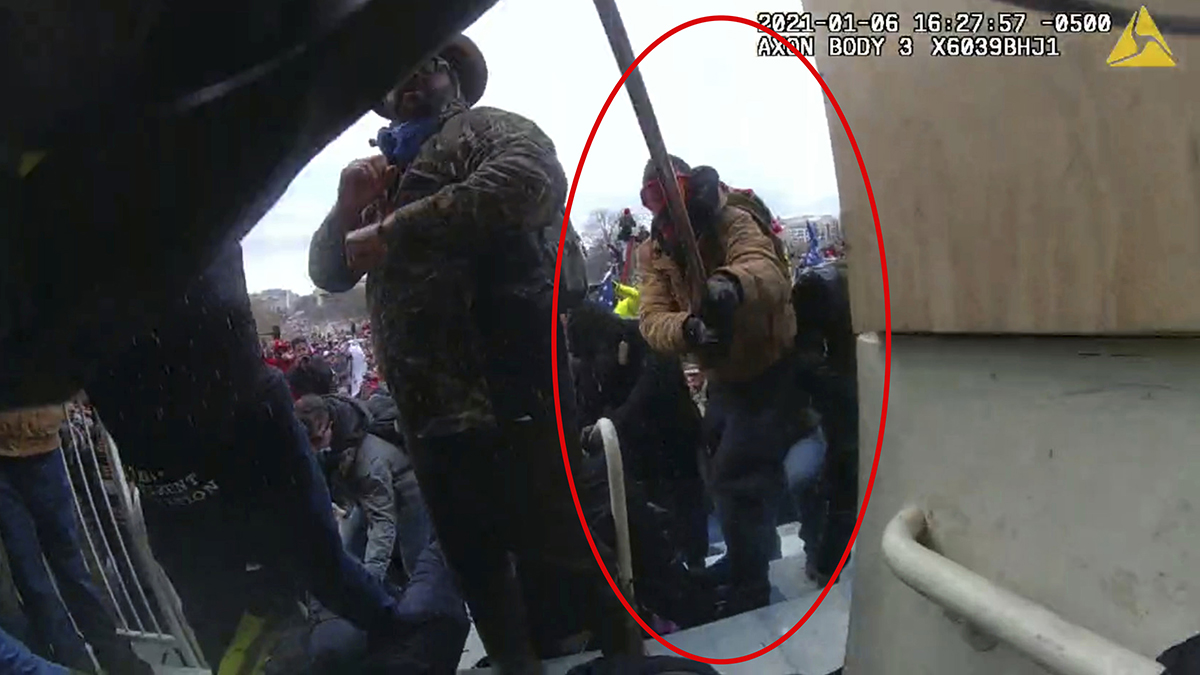A deal seemed so close.
As recently as May, the Trump administration and China seemed on the verge of resolving their dispute over Beijing's combative trade policies.
Then it all collapsed. A cease-fire, declared by Presidents Donald Trump and Xi Jinping in June, failed to stick.
Now, global financial markets are shaking and central banks across the world are trying to cushion their economies from the worst by slashing interest rates — all in the expectation that a trade war between the world's two biggest economies will continue to rage, probably through the 2020 U.S. presidential election.
"The U.S.-China trade talks are in serious trouble," said Wendy Cutler, a former U.S. trade negotiator who is now vice president at the Asia Society Policy Institute. "There is less and less trust on both sides, coupled with a growing sense in both Washington and Beijing that they may be better off without a deal, at least for the time being."
The past week has been especially rocky. A week ago, Trump abruptly announced that starting Sept. 1, he would impose tariffs on the remaining $300 billion in Chinese imports that he's so far spared. On Monday, Beijing struck back: It halted purchases of U.S. farm products — a blow to a critical Trump political base in the Midwest — and let its currency sink to its lowest level in 11 years. A lower-valued Chinese currency, the yuan, gives its exporters a competitive edge over foreign rivals.
Beijing's currency move led the U.S. Treasury Department to declare China a currency manipulator for the first time since 1994. That step could eventually pave the way for additional sanctions. But for now, it stands mainly as a symbol of the increasingly rancorous feud between Washington and Beijing.
U.S. & World
"Both sides are retrenching," said Timothy Keeler, a former chief of staff at the Office of the U.S. Trade Representative and now a partner at the law firm Mayer Brown."
The prospect that the U.S.-China trade war will go on indefinitely poses a serious threat to a global economy that was already weakening. It rattles financial markets, discourages trade and paralyzes businesses that must decide where to situate factories, buy supplies and sell products. When companies caught in the crossfire put such plans on hold, they collectively depress trade and growth. The International Monetary Fund expects world trade to slow in 2019 for a second straight year.
Central banks are moving to try to limit the economic damage, although reducing borrowing rates provide only a limited benefit when rates are already low. The Federal Reserve last week cut a key U.S. interest rate for the first time in a decade. On Wednesday, the central banks of Indonesia, New Zealand and Thailand announced rate cuts of their own.
"We'll be talking about China and the trade-war dynamic over the next decade," predicted Nate Thooft, head of global asset allocation at Manulife Investment Management. "It's not going away permanently."
The Trump administration and Beijing are fighting over a thorny set of issues. The U.S. side says the Chinese are cheating in their drive to dominate such cutting-edge technologies as artificial intelligence and quantum computing. In particular, the administration alleges that Beijing is stealing trade secrets, forcing foreign companies to hand over technology and unfairly subsidizing Chinese tech firms while burying foreign competitors in red tape.
Reaching a substantive deal was bound to be difficult, not least because it would require China to scale back its economic aspirations — aspirations that have become central to its self-identity. Yet at the start of May the two sides seemed to be moving toward some kind of meaningful agreement.
Abruptly, Trump accused Beijing on May 5 of reneging on commitments it had made earlier and said he would raise tariffs on $200 billion in Chinese products, a threat he made good on five days later. The administration also began readying tariffs on an additional $300 billion in Chinese goods — an escalation that would target virtually everything China sells the United States.
"People were way too optimistic in early May," said Philip Levy, chief economist at the San Francisco freight company Flexport who was an adviser in President George W. Bush's administration.
Trump and Xi offered a respite in June. Trump agreed to delay the new tariffs while broken-off talks resumed. After a 12th round of negotiations in Shanghai last month made scant progress, Trump busted the truce and said he'll tax the $300 billion on Sept. 1. He accused Beijing of trying to slow-walk the talks until 2020 in the hope that he would lose the election and they could negotiate with a Democratic president instead.
Whether or not Trump is correct, there is little doubt that his mercurial style has made him difficult to trust in negotiations.
Trump "remains a New York real estate salesman whose abrasive tone and slippery style of haggling is not suitable for international negotiations and diplomatic relations," said Jeff Moon, a former U.S. diplomat and trade official specializing in China.
Beijing might have drawn a lesson from Trump's dealings with Mexico: After pressuring Mexico into agreeing to a revamped North American trade deal last year, Trump refused for months to lift tariffs on Mexican steel and aluminum.
Finally, in mid-May, he announced that he was dropping those tariffs, restoring harmony to regional trade ties — only to turn around two weeks later and threaten Mexico with new tariffs in a dispute, later resolved, over immigration.
"I'm sure the Chinese were watching the Mexican experience," Levy said. "From the Chinese perspective, it was getting harder and harder to see what a deal would look like that would buy you trade peace."
Other factors, too, are working against a compromise. As the 2020 election near, Trump may have less incentive to reach a trade deal that would likely draw fire from Democratic presidential candidates.
Xi, meanwhile, has his own reasons for avoiding concessions that might make him look weak. His regime faces protests in the semi-autonomous region of Hong Kong. And this fall, he will oversee the 70th anniversary of Chinese Communist rule — a time for patriotic chest-beating, not compromising with a foreign rival.
"Washington's repeated bullying has made it meaningless to continue trade talks in the short run," tweeted Hu Xijin, editor-in-chief of China's nationalistic newspaper Global Times. "China is mobilizing internally to fight firmly with the US."
Dean Pinkert, a former member of the U.S. International Trade Commission now at the Hughes Hubbard & Reed law firm, said he still holds out hope for "a quieter set of conversations that get things back on track."
But for now, the talks are stalled. Moon, who runs the China Moon Strategies consultancy, said, "My guess is that both sides will come to regard the relatively apolitical pre-May 5 period as a missed opportunity."
AP Business Writer Stan Choe contributed to this report.



